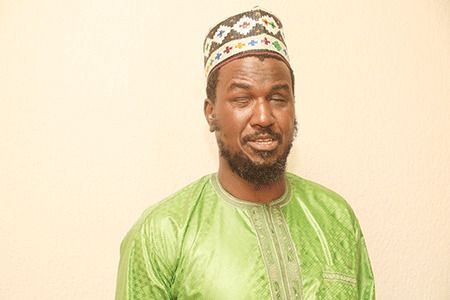Blog
Working together for inclusive education in emergencies in Niger
- Inclusive education
- Africa
- The Americas
This blog post talks about an important project funded by Education Cannot Wait (ECW). The project is called “Accelerating quality inclusive equitable education in emergency for girls and boys with disabilities through partnerships with OPDs, including pilot interventions in Niger and Colombia.”
The project supports national organisations of persons with disabilities (OPDs) to promote inclusive education during emergencies. The project is led by Inclusion International and the International Disability Alliance (IDA).
___________
At the start of the project, the teams in Niger (FNPH) and Colombia (ASDOWN) worked together with different disability groups to support their efforts for inclusive education.
To make sure their actions are effective, the teams used a special tool to understand the strengths and needs of national OPDs, or OPDs that work in and for a specific country. This tool helped them interview national OPDs and plan their activities which started in December 2023.
Assessment in Niger
In Niger, a team of six experts, led by Mr. Siddo Nouhou Oumarou, did the assessment. Mr. Oumarou is the National Project Manager in Niger. The evaluators have lots of experience working with organisations of people with disabilities.
Only 14% of OPDs have worked with humanitarian organisations on inclusive education.
Key finding from Niger OPD Capacity Assessment
Mr. Oumarou explained, “As the National Project Manager, I helped create the OPD Capacity Assessment with my colleague in Colombia, Monica Cortes. In Niger, I trained my team on how to use the assessment tool by doing practice sessions. We assessed 21 organisations, including our own, the Nigerien Federation of Disabled Persons (FNPH).”
Key findings from the evaluation include:
- 48% of OPDs in Niger have very little knowledge of inclusive education and inclusive education in emergency situations.
- Only 14% of OPDs in Niger have worked with humanitarian organisations on inclusive education.
- All organisations (100%) say they need significant capacity building, especially regarding emergencies, which they largely do not understand.
Even with these problems, some OPDs are ready to help improve inclusive education:
- 52% of OPDs in Niger know about inclusive education and have done some work, mainly in awareness-raising and advocacy. These organisations need more training on how to implement inclusive education.
- 57% of OPDs in Niger have basic knowledge of international standards, mainly on inclusive education and CRPD article 24. Only the umbrella OPD has strong knowledge of emergency standards.
- 52% feel ready to help other OPDs become more knowledgeable.
In Conversation with Siddo Oumarou
After the assessment, Mr. Oumarou’s team are planning the next steps to train and support of OPDs’ in Niger. Mr. Oumarou talked about the difficulties children with disabilities face during emergencies:
“Children with disabilities face many barriers to getting an inclusive education during emergencies, and OPDs with the expertise to help are often left out of planning and response efforts.”

Mr. Oumarou stressed the importance of working together and the tasks ahead:
“We have a lot of work to do to promote inclusive education during emergencies. As part of the cross-disability movement, we can make a real change when we work together with a strong, unified voice,” Mr. Oumarou said.
[Humanitarian organisations and OPDs] usually work separately, but we need to bring them together and create systems for mutual learning.
Mr. Siddo Nouhou Oumarou, National Project Manager
He added, “OPDs know a lot about inclusion and the challenges that girls and boys with disabilities face, but they haven’t had the chance to become experts in humanitarian aid and service delivery.”
Mr. Oumarou explained the need for these groups to learn from each other:
“On the other hand, humanitarian workers are skilled at providing education during crises but don’t know much about inclusion. These groups usually work separately, but we need to bring them together and create systems for mutual learning.”
He concluded, “OPDs and humanitarian workers look at education delivery from different angles. To work better together, they need to develop a shared vision of inclusive education. We’re starting by helping OPDs get ready to support this work with a strong spirit of collaboration.”
Read more
To read more about this project, please find the two blog posts below: